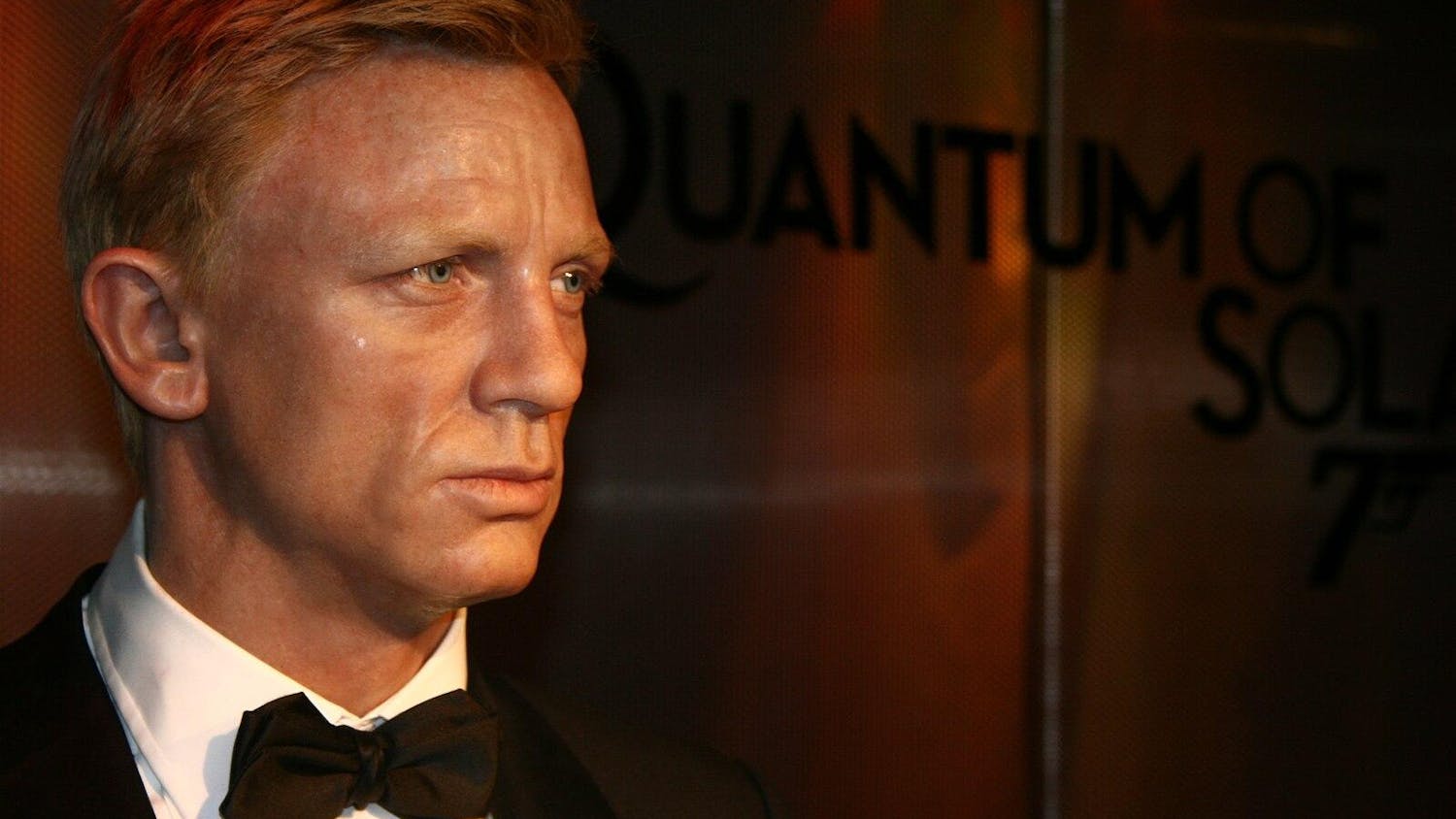Now on its fourth season, Steve Frank's "Psych," broadcast on USA at 10 p.m. on Wednesdays, has become to crime shows what "Scrubs" is to the medical drama genre.
The show follows the nutty antics of Shawn Spencer (James Roday), who feigns psychic ability to reserve himself a spot on the Santa Barbara Police Department's payroll as a crime−solving consultant. Aided by his keen eye for clues and flanked by his intelligent, goody−two−shoes of a best friend, Burton "Gus" Guster (Dulé Hill), Shawn uses none−too−credible psychic episodes to lead the team and solve cases. In the last two episodes, Shawn and Gus puzzle out the murder of an Army Private and the disappearance of Gus's girlfriend's adrenaline−junkie friend.
Like in "Scrubs," there is the element of goofy bromance between Shawn and Gus. Also similar to "Scrubs" is the budding romance between coworkers Shawn and Jules O'Hara (Maggie Lawson), a prospective relationship that like J.D. (Zach Braff) and Elliot's (Sarah Chalke), inspires far too much apathy for the audience to desperately will pens dipped into company ink.
Of course, the most important parallel between "Psych" and "Scrubs" is their shared lack of emphasis on their actual genres of crime and medical drama, respectively. Instead, prominence is placed on the interpersonal workings of the characters −− a bold strategy that demands quality acting, scripting ingenuity and a general constancy of innovation throughout the show's plotline.
That frontier of inventiveness is where "Psych" sometimes falls short, relegating the show to the realms of the enjoyable, but undeniably gimmicky.
For example, each episode begins with a flashback that generally consists of Shawn's father Henry (Corben Bernsen) scolding a younger Shawn and Gus for the string of frivolous shenanigans that apparently began two decades ago. The usage of flashbacks to set a tone is clever, but if their purpose is to show how little Shawn's ambitions or his strained relationship with his father have changed since boyhood, that sorry mission is already accomplished. For Shawn's impressive deductive abilities and his penchant for turning theatrically−expressed hunches into paychecks, he is something of a child in a man's body, a failing of which his father is well aware.
Although the infantile and good−humored immaturity of Shawn mingles nicely, sometimes even hilariously, with Gus's anal retentiveness, their shoulder−angel versus shoulder−devil debates grow tiresome twenty minutes into the episode. The viewer is then forced to sit through another forty minutes of slapstick comedy and bad puns of the wink−wink, nudge−nudge variety. Indeed, the dialogue can be unforgivably saccharine −− saccharine, in fact, as a pineapple, Shawn's alleged favorite fruit to which each episode pays a strangely reverential homage.
Occasionally, the banter is sliced with an interesting plot mechanism; despite its shortcomings, the show is not disingenuous. In "Thrill Seekers and Hell Raisers," Gus has an especially heroic moment as he parachute−tackles a murderer who would have undoubtedly inflicted a tragic fate on Gus's girlfriend Ruby (Sarah Shahi). As Gus soars to earth with an unconscious man in his arms, he divulges to Shawn that he was so terrified that he squeezed the killer until he passed out. Funny, right? Sadly, the script then regresses into calculated pithy witticisms, and the moment is lost.
Another entertaining moment in the season occurs in the aptly named "You Can't Handle this Episode," when Shawn and Gus are caught sneaking into a military base in their attempts to discover who murdered Pvt. Starks. When the Major General unleashes his wrath upon them, exclaiming, "This kind of idiocy will not be tolerated on this base," Shawn quips, "Is there another type of idiocy that you would be more tolerant of?" With that wisecrack, he seems to hit the nail on the head of the scriptwriters' worst ambitions: how stupid can they possibly make the premise of a show, as well as its main character, while still convincing people to watch?
The lack of development in plotline and facility of the characters' personalities is what really dooms the show's fourth season. Though the audience may still find the show funny and pleasant to watch, nothing has changed dramatically enough since the first season to elevate this show from worth watching when nothing else is on to the lofty pedestal of must rush home to watch.
Here and there, efforts are made to deepen the show and add points of interest: Shawn begins a long−distance relationship with his former high school crush, and Shawn's relationship with his father seems marginally less stilted as the two have a whiskey−fueled chat over a grill. Even Jules has her own dash of drama as she is forced to arrest her own brother for attempted murder.
Yet the show is, by definition, a fluffy comedy, and that lack of substance, not to mention plot and character development, assures that the show will become no more than an occasionally delightful novelty.





